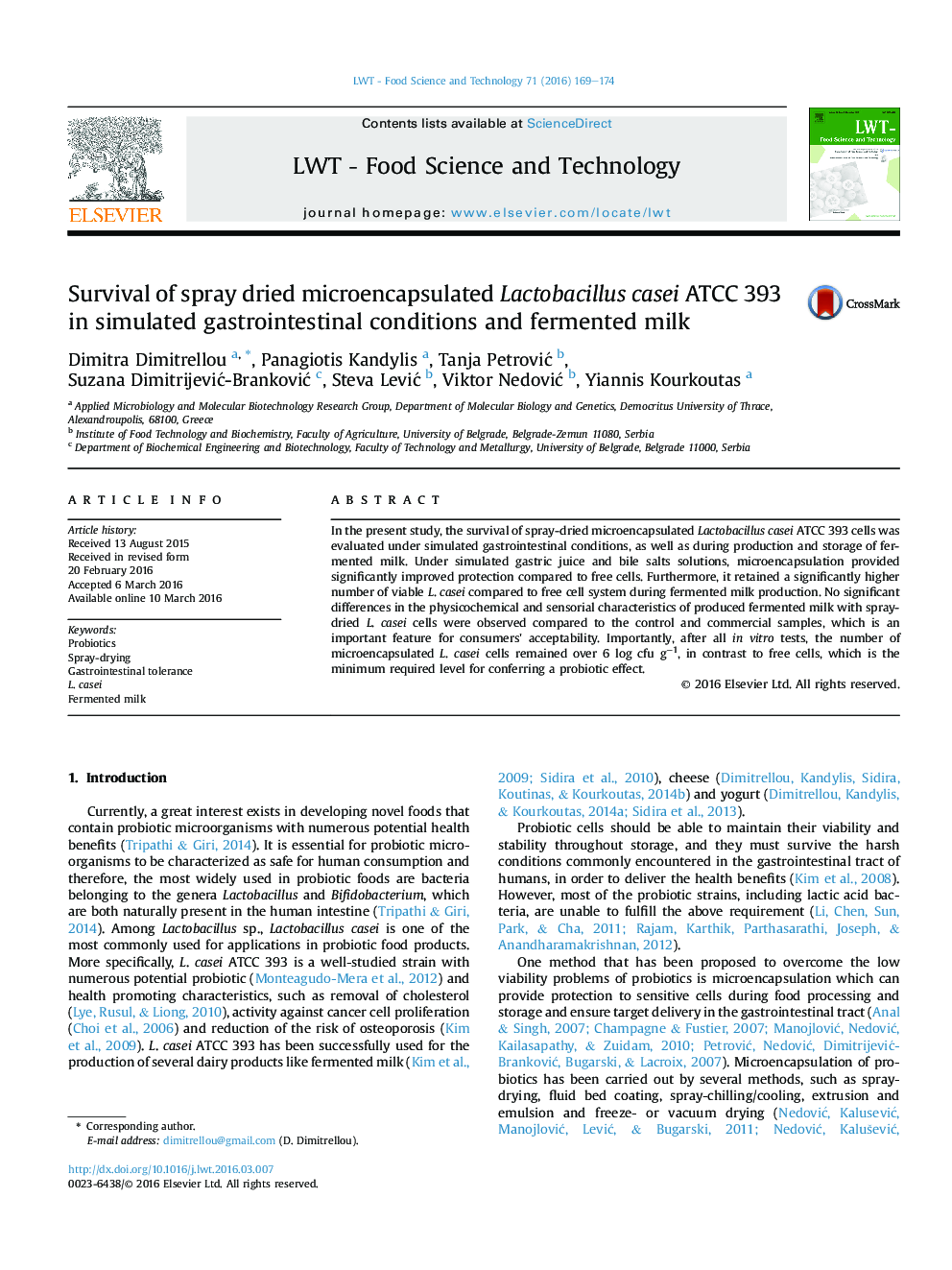| Article ID | Journal | Published Year | Pages | File Type |
|---|---|---|---|---|
| 4563525 | LWT - Food Science and Technology | 2016 | 6 Pages |
•Spray-dried microencapsulated Lactobacillus casei ATCC 393 cells were produced.•Protection under simulated gastrointestinal conditions was reported.•Microencapsulated cells were successfully incorporated in fermented milk.•Increased survival rates in fermented milk under refrigerated storage were recorded.
In the present study, the survival of spray-dried microencapsulated Lactobacillus casei ATCC 393 cells was evaluated under simulated gastrointestinal conditions, as well as during production and storage of fermented milk. Under simulated gastric juice and bile salts solutions, microencapsulation provided significantly improved protection compared to free cells. Furthermore, it retained a significantly higher number of viable L. casei compared to free cell system during fermented milk production. No significant differences in the physicochemical and sensorial characteristics of produced fermented milk with spray-dried L. casei cells were observed compared to the control and commercial samples, which is an important feature for consumers' acceptability. Importantly, after all in vitro tests, the number of microencapsulated L. casei cells remained over 6 log cfu g−1, in contrast to free cells, which is the minimum required level for conferring a probiotic effect.
